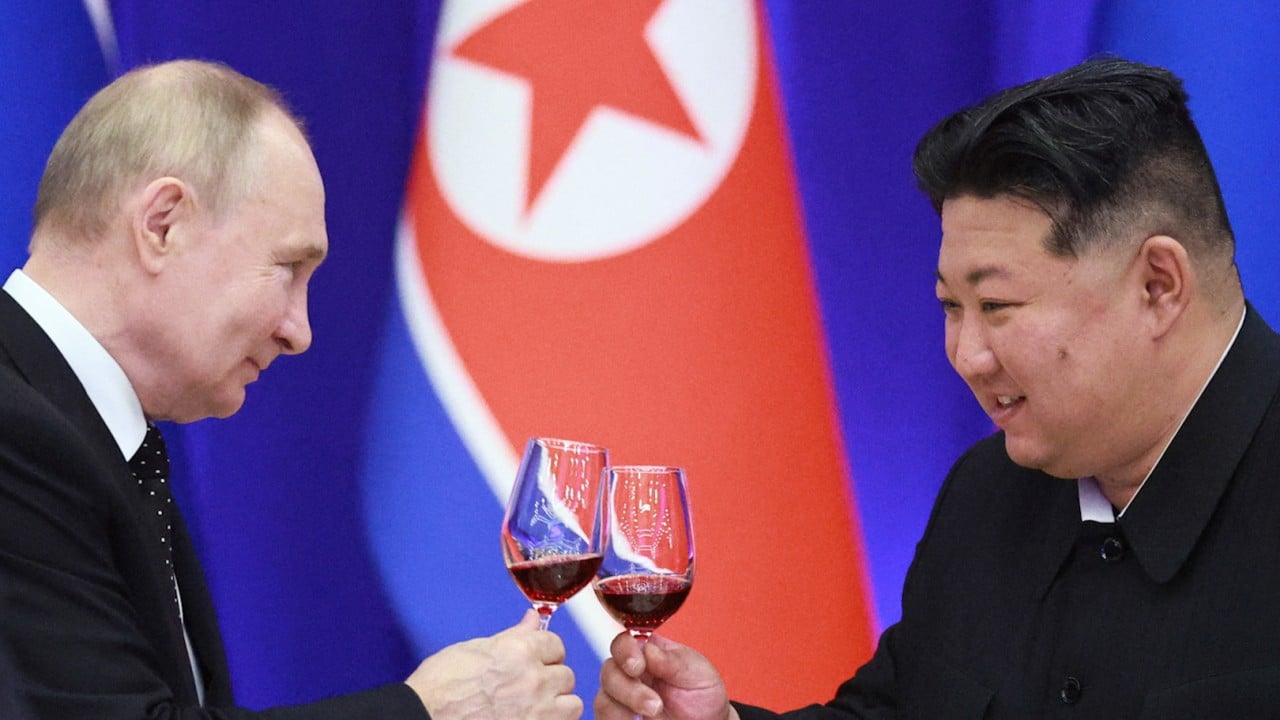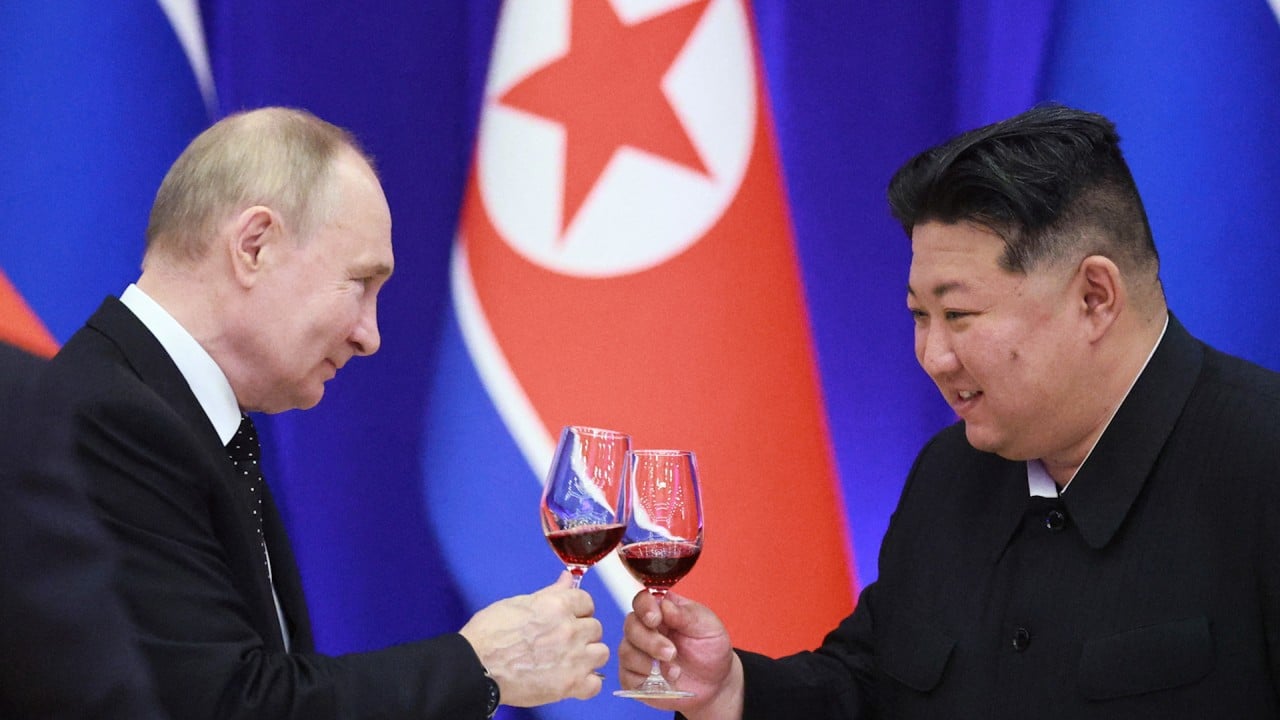Russian President Vladimir Putin said on Thursday that Russia was thinking about possible changes to its doctrine on the use of nuclear weapons.
The existing doctrine states that Russia may use such weapons in response to a nuclear attack or in the event of a conventional attack that poses an existential threat to the state.
Since the start of the war in Ukraine, some hawks among Russian military analysts have been advocating that Russia should lower its threshold for nuclear use.
Putin said, however, that there was no need for Russia to carry out a pre-emptive nuclear strike.
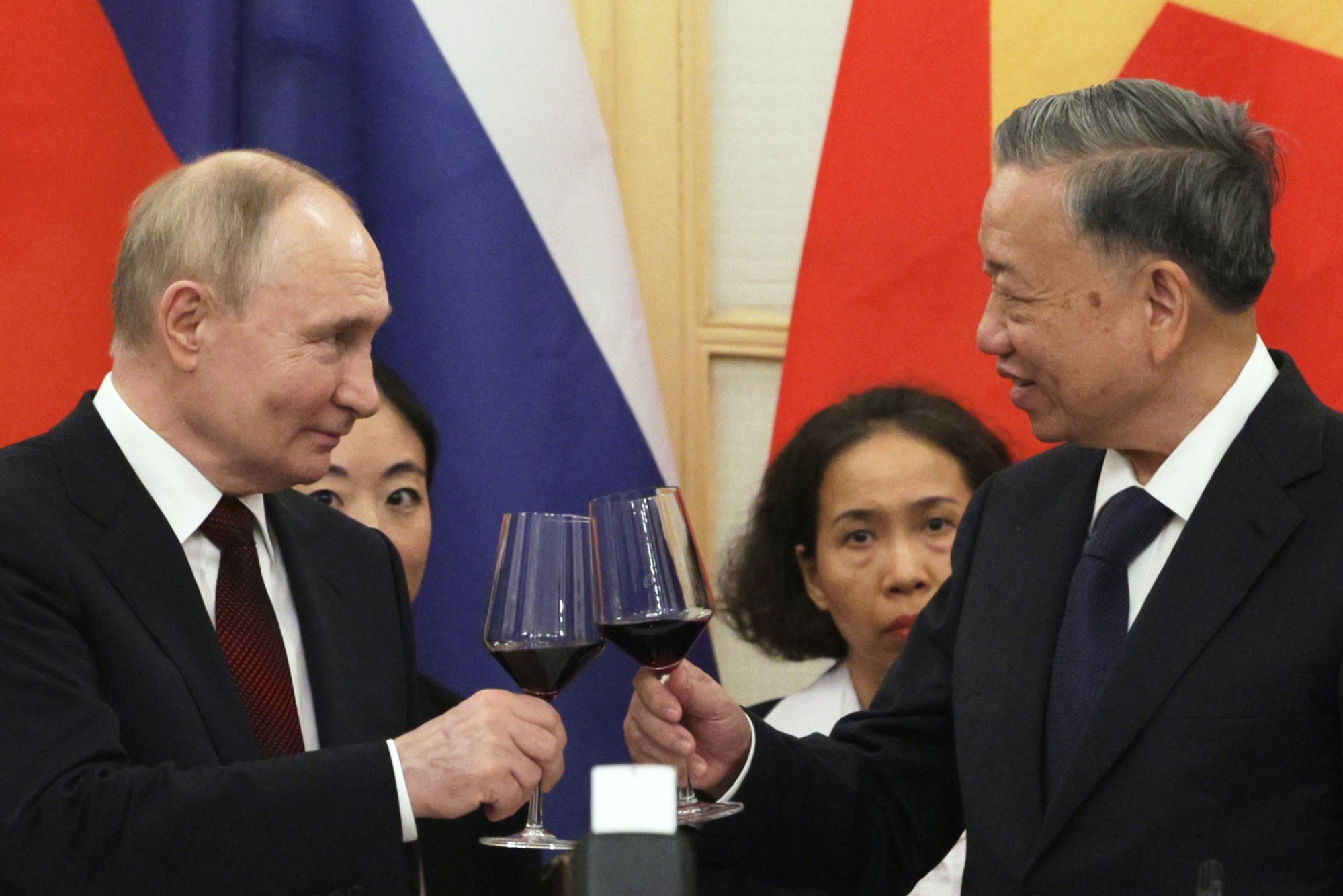
He was speaking to reporters in Vietnam a day after visiting nuclear-armed North Korea for a summit with its leader, Kim Jong-un. The two leaders signed a treaty under which each side promised to provide immediate military help to the other in the event of armed aggression against either one of them.
Russian state media quoted Putin as saying that Moscow expected its cooperation with North Korea would serve as a deterrent to the West, but that there was no need to use North Korean soldiers in the war in Ukraine.
Putin also said he did not rule out Russia supplying high-precision weapons to North Korea.
Putin said South Korea would be making “a big mistake” if it decides to supply arms to Ukraine.
It was reported earlier on Thursday that South Korea would review the possibility of supplying weapons to Ukraine, after Putin and Kim signed the treaty pledging mutual defence in the event of war.
Putin said Moscow would respond to any such move by South Korea.
But he said Seoul had nothing to worry about when it came to the pact between Moscow and North Korea.
“South Korea, the Republic of Korea has nothing to worry about because our military assistance under the treaty we signed only arises if aggression is carried out against one of the signatories. As far as I know, the Republic of Korea is not planning aggression against the DPRK [North Korea],” Putin told reporters.
Also on Thursday, Putin accused the Nato military alliance of creating a security threat for Russia in Asia, the TASS news agency reported.
“We see what is happening in Asia: a bloc system is being put together,” Putin said.
“Nato is already ‘moving’ there [to Asia] as if to a permanent place of residence. This, of course, creates a threat to all countries in the region, including the Russian Federation. We are obliged to respond to this and will do it,” Putin said.
The United States responded to Putin’s Vietnam visit by saying it would stay focused on deepening ties with Hanoi, with which it has sought strong ties to counter rivalry with China.
Hours after Putin signed the mutual defence pact, Washington announced that its top diplomat for East Asia, Daniel Kritenbrink, would visit Vietnam on Friday and Saturday to stress Washington’s commitment to working with Hanoi to ensure a “free and open” Indo-Pacific region.
Putin’s two-nation trip to Asia has been seen as a show of defiance to the West, and Vietnam’s hosting him had been sharply criticised by Washington, which said the Russian leader should not be given a stage on which to defend the war in Ukraine.
The White House national security spokesperson John Kirby was asked at a regular briefing if Washington believed Putin would be seeking support for the Ukraine war from Vietnam and said Washington expected that Hanoi would continue to adhere to UN principles on respect for territorial integrity.
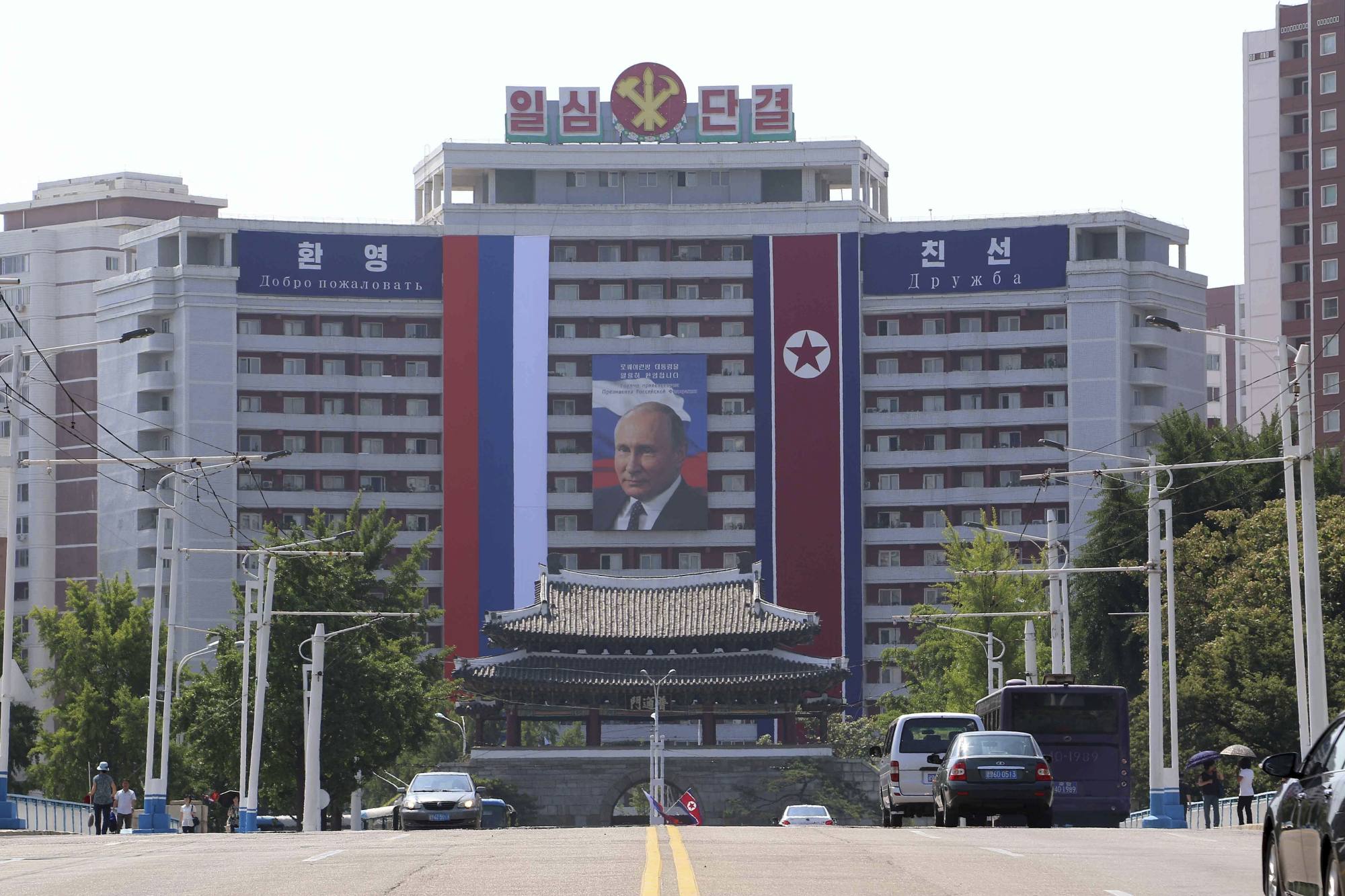
Kirby stressed the US upgrade of relations with Vietnam last year, and added: “We’re going to stay focused on continuing to deepen it, broaden it, improve it for own mutual benefits to each other and to the region.”
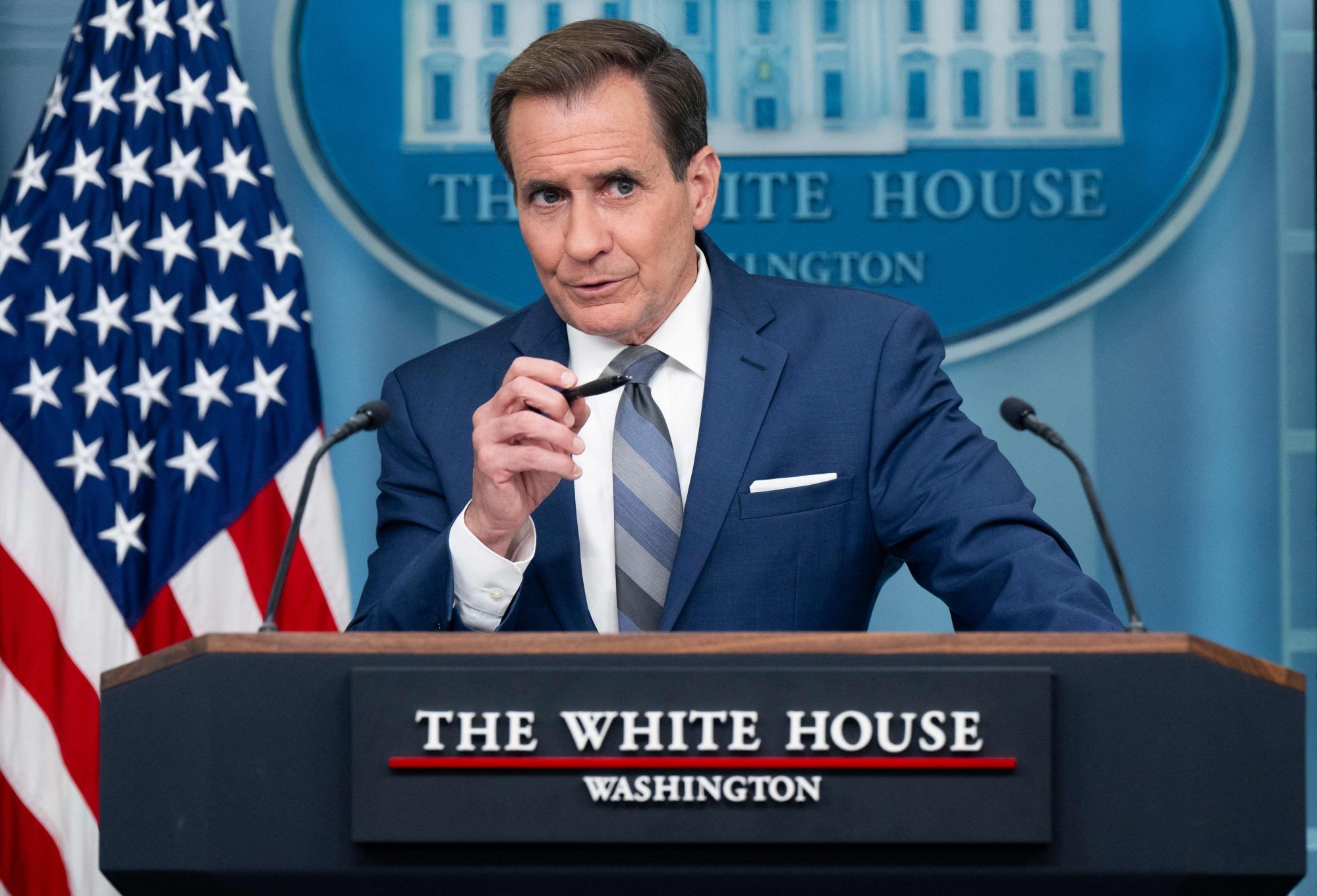
The US is now Vietnam’s top export market and the US State Department said in announcing Kritenbrink’s visit that he would “reaffirm the United States’ support for a strong, independent, resilient, and prosperous Vietnam” and “underscore the strong US commitment to implementing the US-Vietnam Comprehensive Strategic Partnership”.
Russia and Vietnam signed agreements on issues including energy, underlining Moscow’s pivot to Asia after the West imposed sanctions on Russia over the Ukraine conflict.
Despite US concern over Vietnam hosting Putin, some analysts believe Hanoi may have calculated it will not suffer material consequences, given that Washington relies on good relations with Vietnam to counter its rivalry with China in the Indo-Pacific region.
However, Hanoi is awaiting an important US decision expected by July 26, on whether to elevate Vietnam to market-economy status, and Alexander Vuving, a Vietnam and Asia expert at Hawaii’s Daniel K Inouye Asia-Pacific Centre for Security Studies, said hosting Putin could affect this.
“I think the Putin visit makes Vietnam less trustful in the eyes of the US, and may negatively affect the US decision,” he said.
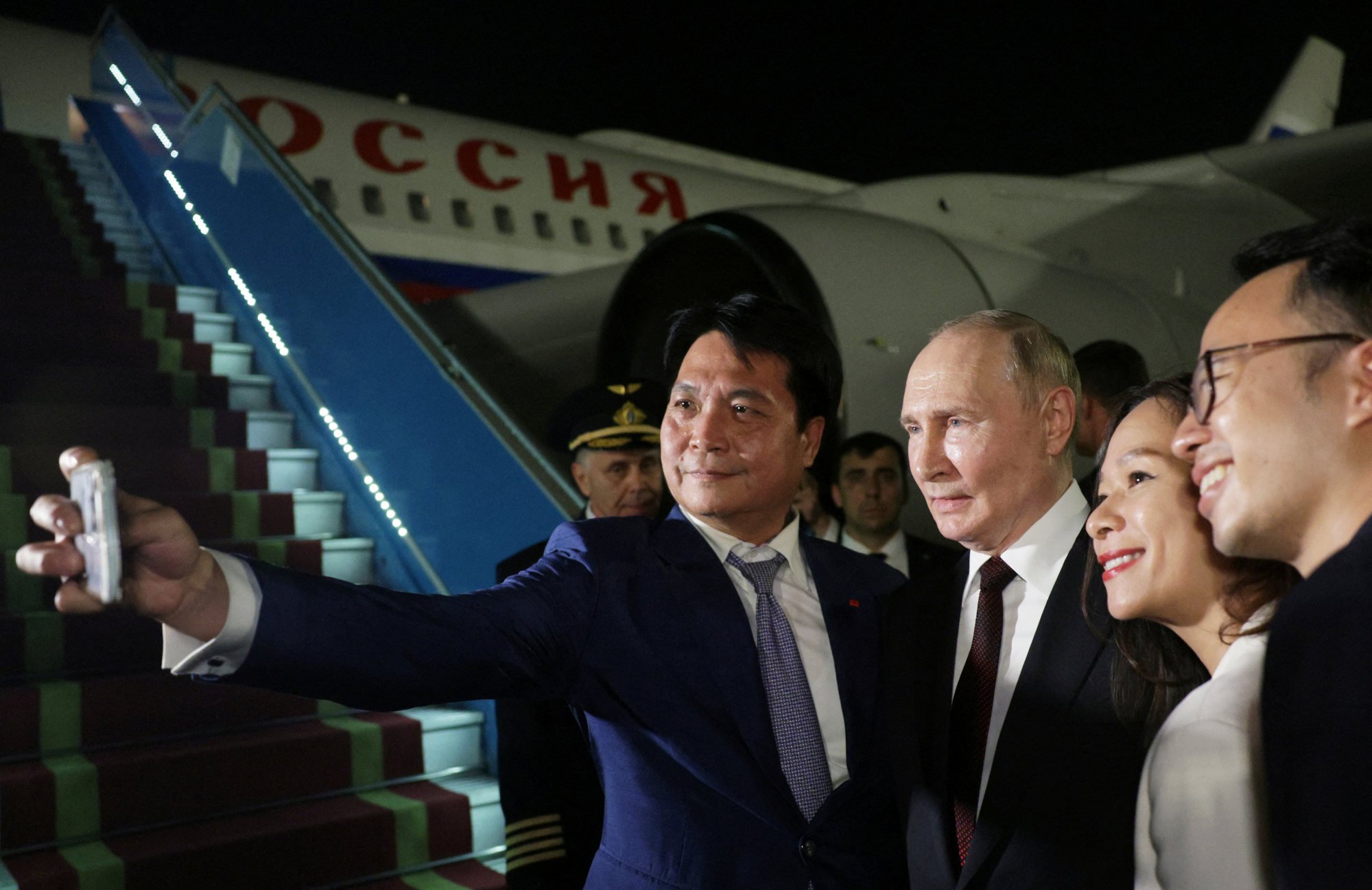
The upgrade Hanoi seeks is opposed by US steelmakers, Gulf coast shrimpers and honey farmers, but backed by retailers and some other business groups. It would reduce punitive anti-dumping duties set on Vietnamese imports given its current status as a non-market economy marked by heavy state influence.
Speaking to reporters on Thursday, US Treasury Secretary Janet Yellen did not reply when asked if Vietnam’s closer ties with Moscow would affect the coming US Commerce Department decision.
She said Washington saw Vietnam as a partner in its efforts to diversify supply chains and reduce reliance on China. She added that the upgraded US partnership with Vietnam did not require Vietnam to sever ties with Russia or China and that Hanoi has a clear policy of working with many countries.
Alarmed by China’s growing military power, the United States has pushed for Nato to share expertise and build ties with countries such as Japan, South Korea, Australia and New Zealand.
At odds with Nato over his war in Ukraine, Putin sees the military alliance as an adversary and accuses it of deceiving Russia by granting membership to east European countries following the collapse of the Soviet Union in 1991.


